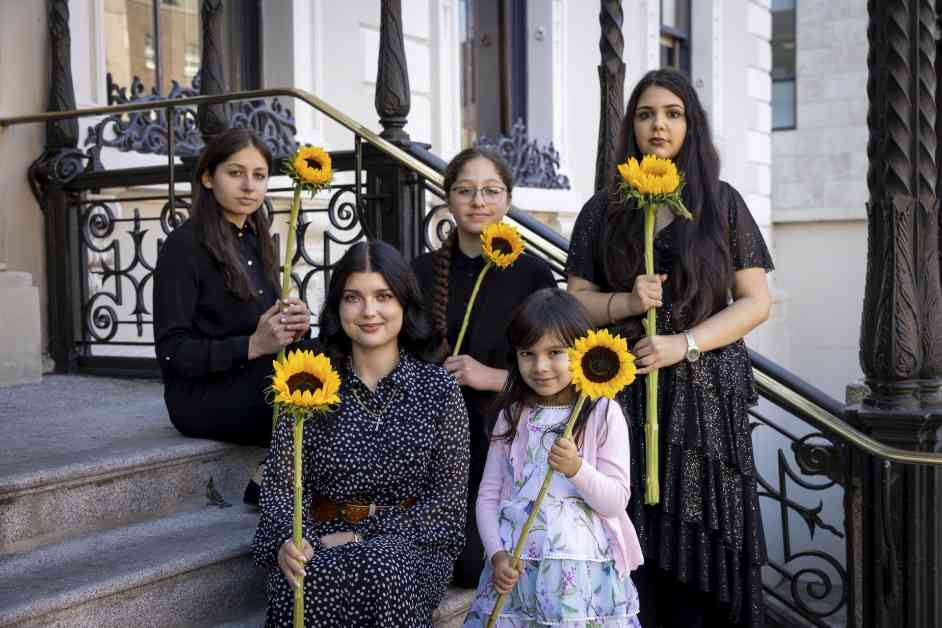The 80th Anniversary of Roma Genocide by Nazis: Honoring the Memories of the Victims
In a solemn remembrance of the tragic events that unfolded during World War II, the 80th Anniversary of the Roma Genocide was commemorated at the Mansion House by Pavee Point Traveller and Roma Centre, in collaboration with the Department of Children, Equality, Disability, Integration, and Youth. This event served as a poignant reminder of the atrocities committed against the Roma people during the Nazi era, particularly the horrifying events that took place at Auschwitz-Birkenau on August 2, 1944.
The Roma people, including women, children, and the elderly, were mercilessly murdered at Auschwitz-Birkenau, one of the largest Nazi concentration and death camps. It is estimated that at least 4,300 Roma individuals lost their lives on that tragic day, adding to the staggering death toll of approximately 500,000 European Roma who perished during the war. These numbers serve as a chilling reminder of the systematic extermination of an entire ethnic group by the Nazi regime.
Remembering the Victims
At the heart of the commemorative event was the poignant message of “Never Again – Recognition, Remembrance, and Reflection on the Roma Genocide.” The significance of honoring the memory of the Roma and Sinti victims, known as the Porajmos in the Romani language, was emphasized by Gabi Muntean, a Roma Community Worker at Pavee Point. She highlighted the importance of preserving this dark chapter of history to educate future generations about the dangers of racism and hatred, underscoring the need for unity in the face of such atrocities.
Minister of State at the Department of Children, Equality, Disability, Integration, and Youth, Anne Rabbitte T.D., echoed this sentiment by acknowledging the ongoing challenges faced by the Roma community, including misunderstanding, intolerance, and racially motivated hate crimes. She reaffirmed the government’s commitment to combatting racism and discrimination, particularly anti-Roma and anti-Traveller sentiments, through strategic initiatives such as the National Action Plan on Racism and the National Traveller and Roma Integration Strategy.
Preserving the Legacy
Lord Mayor of Dublin, Cllr. James Geoghegan, shed light on the often overlooked history of the Roma Genocide, emphasizing the need to remember the countless lives lost during this tragic period. Despite being referred to as the “Forgotten Holocaust,” the genocide of Roma and Sinti remains a poignant reminder of the atrocities committed by the Nazis. With an estimated 16,059 Roma individuals residing in Ireland, the event served as a poignant reminder of the enduring impact of historical trauma on the Roma community.
Roma Community worker Rudolf Simonic emphasized the importance of educating both the Roma community and broader society about the genocide and its lasting repercussions. By sharing personal stories and historical accounts, the event aimed to raise awareness and ensure that the memory of the victims is preserved for future generations. Through initiatives like “Never Again,” efforts are being made to integrate the history of the Roma Genocide into educational curricula, ensuring that the lessons of the past are not forgotten.
Honoring the Survivors
The commemorative event featured a diverse range of speakers, including Mr. Christian Pfeil, a German-Sinti survivor of Nazi terror, who shared his harrowing experiences of survival. Dr. Ethel Brooks, a renowned scholar in Women’s, Gender, and Sexual Studies, provided valuable insights into the contextualization of the Roma genocide, shedding light on the lesser-known aspects of this dark chapter in history. By recounting personal anecdotes and historical facts, the speakers sought to illuminate the struggles faced by the Roma community during the Nazi era.
As the world grapples with ongoing challenges related to racism and discrimination, events like “Never Again” serve as a poignant reminder of the need to confront the legacies of hatred and intolerance. By honoring the memories of the Roma and Sinti victims, we pay tribute to their resilience and courage in the face of unimaginable adversity. Through education, remembrance, and reflection, we strive to build a more inclusive and compassionate society that values the dignity and humanity of all its members.












